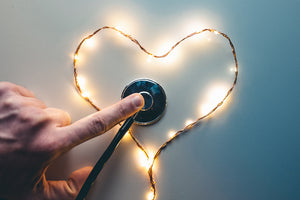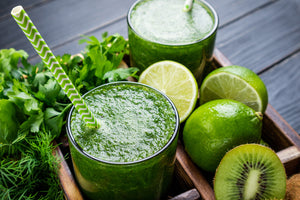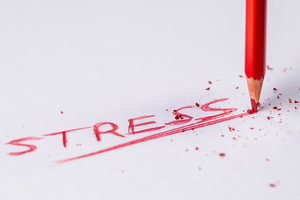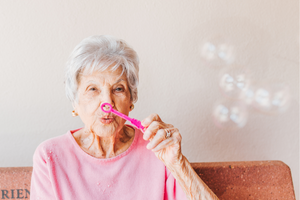Friendship and Feeling Alone

You’ve got 400 Facebook “friends,” and 500 followers on Twitter. When you post a picture of your dinner, or of you having a drink poolside during your vacation, it’s guaranteed to get plenty of “likes” and shares. Technically, you have a wide social network. Human interaction with friends and strangers all over the world is at your fingertips. Not to mention, you’re surrounded by people at work, at the gym, the supermarket, on mass transit, and more. So why, then, do you sometimes feel completely alone?
One thing is for sure: if this describes you, you’re not the only one. In fact, loneliness seems to be one of the defining states of our time: feeling alone despite being in a sea of people. Nods of acknowledgement, half smiles, and a quick “thank you” to cashiers and baristas lack the depth of genuine human connection many people are hurting for in the 21st Century, but few people even realize this is missing from their life.
Social interaction is an important but often overlooked aspect of physical and mental health. Having a network of good friends may be just as helpful as having a freezer full of grass-fed beef, or a pantry stocked with canned wild-caught salmon. Friends help each other navigate the ups and downs of life, helping to celebrate when things go well, and being there to commiserate and offer comfort (or a glass of wine!) when things aren’t going so well.
The concept of social isolation isn’t new. A now classic work on the topic, Robert Putnam’s book Bowling Alone, was published in 2001—after the internet had connected friends and strangers all over the world, but long before smartphones had Facebook, Twitter, and other social media outlets literally at our fingertips. The irony is, we’re more “connected” than ever, yet simultaneously, many people feel more isolated and alone than ever. Hundreds of “friends,” “likes,” and “shares” mean precious little if you feel alone in your “real life,” and when there’s no one around who truly knows and understands you. The superficial interactions people experience online are the equivalent of social interaction junkfood: good for a quick pick-me-up and a bit of instant gratification, but lacking in terms of true nourishment. “Friends” and networks on social media do provide an outlet for human interaction, but for many people, they’re not a sufficient substitute for in-person meetings, eye-contact, handshakes, and hugs. When a crisis strikes at 4 a.m., how many of those “friends” could be relied on to show up at your doorstep, ready to help?
A study published recently in the Proceedings of the National Academy of Sciences, titled “Social relationships and physiological determinants of longevity across the human life span,” found that the depth of social relationships has a profound effect on mental and physical health. Effects on mental health are easy to imagine; it’s the physical parameters that came as a surprise. The study determined that across the lifespan—from young to old—a higher degree of social integration was associated with lower physiological dysregulation. Specifically, “social isolation increased the risk of inflammation by the same magnitude as physical inactivity in adolescence, and the effect of social isolation on hypertension exceeded that of clinical risk factors such as diabetes in old age.” According to the study, systolic blood pressure, C-reactive protein (a marker for inflammation), and waist circumference were better among individuals with deeper social ties.
It’s important to note that when it comes to social ties, quality trumps quantity. Having a small, close-knit group of friends who love and support one another despite each other’s foibles and follies is better than having more friends, but among whom one feels less at ease or less like they can be themselves. Something else to keep in mind is that loneliness may be a subjective feeling. For people who don’t have many deep and lasting friendships, but who don’t feel particularly lonely, nor that something is “missing” from their life experience, then they may not suffer ill effects the way someone might who recognizes their loneliness and the toll it may be taking on their wellbeing.
The role of friendships in supporting better health shows that close social ties mean more than just the obvious, such as bolstering and encouraging each other’s healthy habits, like being gym buddies, or both opting for a side of vegetables instead of fries at a restaurant. The psychological benefits of having good friends are quantifiable in the physical body as well.
For more on this crucial but little-discussed topic, naturopathic physician Bryan Walsh provided a review of the medical literature, plus clinical insights on the Nourish Balance Thrive podcast. (Also available through iTunes [episode date 11/12/15], or full transcript available here.)
Sources
- Cacioppo JT, Fowler JH, Christakis NA. Alone in the Crowd: The Structure and Spread of Loneliness in a Large Social Network. Journal of personality and social psychology. Yang YC, Boen C, Gerken K, Li T, Schorpp K, Harris KM. Social relationships and physiological determinants of longevity across the human life span. Proceedings of the National Academy of Sciences of the United States of America. 2016;113(3):578-583.
- Russell DW1, Cutrona CE, McRae C, Gomez M. Is loneliness the same as being alone? J Psychol. 2012 Jan-Apr;146(1-2):7-22.
- David Brady







Comments 0